Blog
An In-depth Analysis of Bupropion HCL: Its Uses, Side Effects, and More
Bupropion Hcl – Uses, Side Effects, and More
In this comprehensive study, we aim to provide a detailed analysis of Bupropion Hcl, shedding light on its various uses, potential side effects, and additional relevant information. Through a meticulous examination of available literature, we present a concise overview of this medication, adhering to a formal and objective tone.
Table of Content
- Introduction to Bupropion Hydrochloride
- Uses of Bupropion Hcl
- How to use Bupropion Hcl
- Side Effects of Bupropion Hcl
- Additional Information on the use of Bupropion Hydrochloride
- Precautions To Take While Using Bupropion
- Interactions With Bupropion Hydrochloride
- Reacting to a Situation of an Overdose
- Bupropion Dosage Forms
- Conclusion
Introduction to Bupropion hydrochloride
Bupropion Hcl, a pharmaceutical compound widely used in the medical field, has garnered significant attention due to its diverse applications and potential side effects. In this paper, we delve into the intricacies of this medication, aiming to provide a comprehensive understanding of its uses, side effects, and other pertinent details.
Uses of Bupropion Hcl
Bupropion Hcl finds its primary application in the treatment of major depressive disorder (MDD). Numerous clinical trials have demonstrated its efficacy in alleviating symptoms associated with this condition. Additionally, this medication has been prescribed as an aid for smoking cessation, showcasing its versatility in addressing multiple health concerns.
How to use Bupropion Hcl
Read the Patient Information Leaflet and Medication Guide available from your pharmacist before you start using bupropion and each time you get a refill. Consult your doctor or pharmacist if you have any questions.
Take this medication by mouth with or without food as directed by your doctor, usually three times daily. If stomach upset occurs, you may take this drug with food. It is important to take your doses at least 6 hours apart or as directed by your doctor to decrease your risk of having a seizure.
The manufacturer directs not to crush, cut, or chew the tablet before taking it. However, many similar drugs (immediate-release tablets) can be crushed, cut, or chewed. Follow your doctor’s directions on how to take this medication.
Do not take more or less medication or take it more often than prescribed. Taking more than the recommended dose of bupropion may increase your risk of having a seizure.
The dosage is based on your medical condition and response to treatment. Your dose may be slowly increased to limit side effects such as sleeplessness, and to decrease the risk of seizures. To avoid trouble sleeping, do not take this medication too close to bedtime. Let your doctor know if sleeplessness becomes a problem.
Use this medication regularly in order to get the most benefit from it. To help you remember, use it at the same times each day.
Do not stop taking this medication without consulting your doctor. Some conditions may become worse when the drug is suddenly stopped. Your dose may need to be gradually decreased.
It may take 4 or more weeks before you notice the full benefit of this drug. Continue to take this medication as directed by your doctor even after you feel better. Talk to your doctor if your condition does not improve or if it worsens.
Side Effects of Bupropion Hcl
While Bupropion Hcl exhibits promising therapeutic effects, it is crucial to acknowledge the potential side effects associated with its usage. Common adverse reactions include dry mouth, insomnia, and gastrointestinal disturbances. Furthermore, it is important to note that in rare cases, this medication has been linked to more severe side effects such as seizures and allergic reactions. Therefore, it is imperative for healthcare professionals to exercise caution when prescribing Bupropion Hcl and closely monitor patients for any adverse reactions.
Nausea, vomiting, dry mouth, headache, constipation, increased sweating, joint aches, sore throat, blurred vision, strange taste in the mouth, diarrhea, or dizziness may occur. If any of these effects last or get worse, notify your doctor or pharmacist promptly.
Remember that this medication has been prescribed because your doctor has judged that the benefit to you is greater than the risk of side effects. Many people using this medication do not have serious side effects.
This medication may raise your blood pressure. Check your blood pressure regularly and tell your doctor if the results are high.
Tell your doctor right away if you have any serious side effects, including: chest pain, fainting, fast/pounding/irregular heartbeat, hearing problems, ringing in the ears, severe headache, mental/mood changes (such as agitation, anxiety, confusion, hallucinations, memory loss), uncontrolled movements (tremor), unusual weight loss or gain, muscle pain/tenderness/weakness.
Get medical help right away if you have any very serious side effects, including: eye pain/swelling/redness, widened pupils, vision changes (such as seeing rainbows around lights at night), seizure.
A very serious allergic reaction to this drug is rare. However, get medical help right away if you notice any symptoms of a serious allergic reaction, including: rash, itching/swelling (especially of the face/tongue/throat), severe dizziness, trouble breathing.
This is not a complete list of possible side effects. If you notice other effects not listed above, contact your doctor or pharmacist.
In the US – Call your doctor for medical advice about side effects. You may report side effects to FDA at 1-800-FDA-1088 or at www.fda.gov/medwatch.
In Canada – Call your doctor for medical advice about side effects. You may report side effects to Health Canada at 1-866-234-2345.
Additional Information on the use of Bupropion Hydrochloride
In addition to its primary uses and potential side effects, it is worth mentioning that Bupropion Hcl interacts with certain medications, necessitating careful consideration when prescribing it alongside other drugs. Furthermore, it is recommended to gradually discontinue the use of this medication to minimize the risk of withdrawal symptoms.
Precautions To Take While Using Bupropion
Before taking bupropion, tell your doctor or pharmacist if you are allergic to it; or if you have any other allergies. This product may contain inactive ingredients, which can cause allergic reactions or other problems. Talk to your pharmacist for more details.
Before using this medication, tell your doctor or pharmacist your medical history, especially of: seizures or conditions that increase your risk of seizures (including brain/head injury, brain tumors, arteriovenous malformation, eating disorders such as bulimia/anorexia nervosa), alcohol/drug dependence (including benzodiazepines, opioid pain medicines, cocaine and stimulants), diabetes, heart disease (such as congestive heart failure, high blood pressure, recent heart attack), kidney problems, liver problems (such as cirrhosis), personal or family history of psychiatric disorder (such as bipolar/manic-depressive disorder), personal or family history of suicide thoughts/attempts, personal or family history of glaucoma (angle-closure type).
This medication should not be used if you are suddenly stopping regular use of sedatives (including benzodiazepines such as lorazepam), drugs used to treat seizures, or alcohol. Doing so may increase your risk of seizures.
This drug may make you dizzy or affect your coordination. Alcohol or marijuana (cannabis) can make you more dizzy or affect your coordination. Do not drive, use machinery, or do anything that needs alertness until you can do it safely. Avoid alcoholic beverages. Alcohol can also increase your risk of seizures. Talk to your doctor if you are using marijuana (cannabis).
Older adults may be more sensitive to the side effects of this drug, especially dizziness and memory loss. Dizziness can increase the risk of falling.
During pregnancy, this medication should be used only when clearly needed. Since untreated mental/mood problems (such as depression, seasonal affective disorder, bipolar disorder) can be a serious condition, do not stop taking this medication unless directed by your doctor. If you are planning pregnancy, become pregnant, or think you may be pregnant, immediately discuss with your doctor the benefits and risks of using this medication during pregnancy.
This drug passes into breast milk and may have undesirable effects on a nursing infant. Consult your doctor before breast-feeding.
Interactions With Bupropion Hydrochloride
Drug interactions may change how your medications work or increase your risk for serious side effects. This document does not contain all possible drug interactions. Keep a list of all the products you use (including prescription/nonprescription drugs and herbal products) and share it with your doctor and pharmacist. Do not start, stop, or change the dosage of any medicines without your doctor’s approval.
Some products that may interact with this drug include: codeine, pimozide, tamoxifen, thioridazine.
Taking MAO inhibitors with this medication may cause a serious (possibly fatal) drug interaction. Avoid taking MAO inhibitors (isocarboxazid, linezolid, metaxalone, methylene blue, moclobemide, phenelzine, procarbazine, rasagiline, safinamide, selegiline, tranylcypromine) during treatment with this medication. Most MAO inhibitors should also not be taken for two weeks before and after treatment with this medication. Ask your doctor when to start or stop taking this medication.
This medication may interfere with certain medical/lab tests (such as brain scan for Parkinson’s disease, urine screening for amphetamines), possibly causing false test results. Make sure lab personnel and all your doctors know you use this drug.
Reacting to a Situation of an Overdose
If someone has overdosed and has serious symptoms such as passing out or trouble breathing, call 911. Otherwise, call a poison control center right away. US residents can call their local poison control center at 1-800-222-1222. Canada residents can call a provincial poison control center. Symptoms of overdose may include: seizures, hallucinations, fast or slow heart rate, loss of consciousness.
Notes:
- Do not share this medication with others.
- Psychiatric/medical checkups or tests such as blood pressure monitoring may be performed periodically to monitor your progress or check for side effects. Consult your doctor for more details.
Missed Dose: If you miss a dose, skip the missed dose. Take your next dose at the regular time. Do not double the dose to catch up.
Storage: Store at room temperature away from light and moisture. Bupropion tablets may have a strange odor. This is normal and the medication is still okay to use. Do not store in the bathroom. Keep all medications away from children and pets.
Do not flush medications down the toilet or pour them into a drain unless instructed to do so. Properly discard this product when it is expired or no longer needed. Consult your pharmacist or local waste disposal company.
Bupropion Dosage Forms
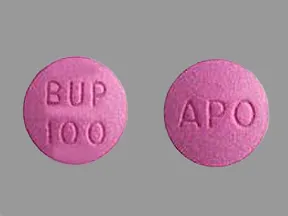
bupropion HCl 100 mg tablet
- Color: purple
- Shape: round
- Imprint: APO BUP 100
This medicine is a purple, round, film-coated, tablet imprinted with “APO” and “BUP 100”.

bupropion HCl 75 mg tablet
- Color: orange
- Shape: round
- Imprint: APO BU 75
This medicine is a orange, round, film-coated, tablet imprinted with “APO” and “BU 75”.

bupropion HCl 75 mg tablet
- Color: lavender
- Shape: round
- Imprint: GG 929
This medicine is a lavender, round, film-coated, tablet imprinted with “GG 929”.

bupropion HCl 100 mg tablet
- Color: orange
- Shape: round
- Imprint: GG 930
This medicine is a lavender, round, film-coated, tablet imprinted with “GG 930”.

bupropion HCl 75 mg tablet
- Color: yellow
- Shape: round
- Imprint: IG 539
This medicine is a yellow, round, tablet imprinted with “IG” and “539”.
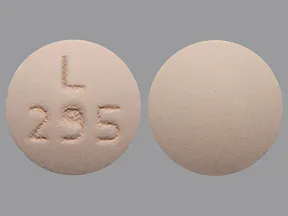
bupropion HCl 75 mg tablet
- Color: light orange
- Shape: round
- Imprint: L295
This medicine is a light orange, round, film-coated, tablet imprinted with “L295”.

bupropion HCl 75 mg tablet
- Color: peach
- Shape: round
- Imprint: M 433
This medicine is a peach, round, film-coated, tablet imprinted with “M” and “433”.

bupropion HCl 100 mg tablet
- Color: red
- Shape: round
- Imprint: 192
This medicine is a red, round, tablet imprinted with “192”.
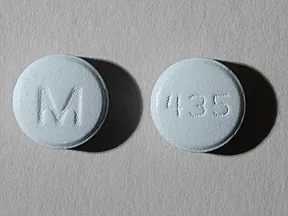
bupropion HCl 100 mg tablet
- Color: light blue
- Shape: round
- Imprint: M 435
This medicine is a light blue, round, film-coated, tablet imprinted with “M” and “435”.

bupropion HCl 75 mg tablet
- Color: yellow
- Shape: round
- Imprint: 191
This medicine is a yellow, round, tablet imprinted with “191”.
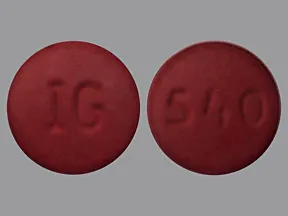
bupropion HCl 100 mg tablet
- Color: red
- Shape: round
- Imprint: IG 540
This medicine is a red, round, tablet imprinted with “IG” and “540”.

bupropion HCl 75 mg tablet
- Color: light lavender
- Shape: round
- Imprint: L 1
This medicine is a light lavender, round, film-coated, tablet imprinted with “L 1”.
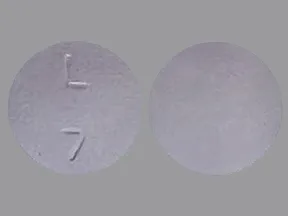
bupropion HCl 100 mg tablet
- Color: light lavender
- Shape: round
- Imprint: L 7
This medicine is a light lavender, round, film-coated, tablet imprinted with “L 7”.
Conclusion
In conclusion, Bupropion Hcl is a versatile medication that has proven effective in the treatment of major depressive disorder and smoking cessation. However, it is essential to be aware of the potential side effects associated with its usage, ranging from mild to severe. By providing this comprehensive analysis, we hope to contribute to the existing body of knowledge surrounding Bupropion Hcl, enabling healthcare professionals to make informed decisions when prescribing this medication.
Warnings:
Bupropion is an antidepressant used to treat a variety of conditions, including depression, other mental/mood disorders, and smoking cessation. Antidepressants can help prevent suicidal thoughts/attempts and provide other important benefits. However, studies have shown that a small number of people (especially people younger than 25) who take antidepressants for any condition may experience new or worsening depression, other mental/mood symptoms, or suicidal thoughts/attempts. It is very important to talk with the doctor about the risks and benefits of antidepressant medication, even if treatment is not for a mental/mood condition.
Tell the doctor right away if you notice new or worsening depression/other psychiatric conditions, unusual behavior changes (including possible suicidal thoughts/attempts), or other mental/mood changes (including new/worsening anxiety, panic attacks, trouble sleeping, irritability, hostile/angry feelings, impulsive actions, severe restlessness, very rapid speech). Be especially watchful for these symptoms when a new antidepressant is started or when the dose is changed.
If you are using bupropion to quit smoking, stop taking bupropion and contact your doctor right away if you experience any of the symptoms listed above. Tell your doctor right away if you have any of these symptoms after stopping treatment.

